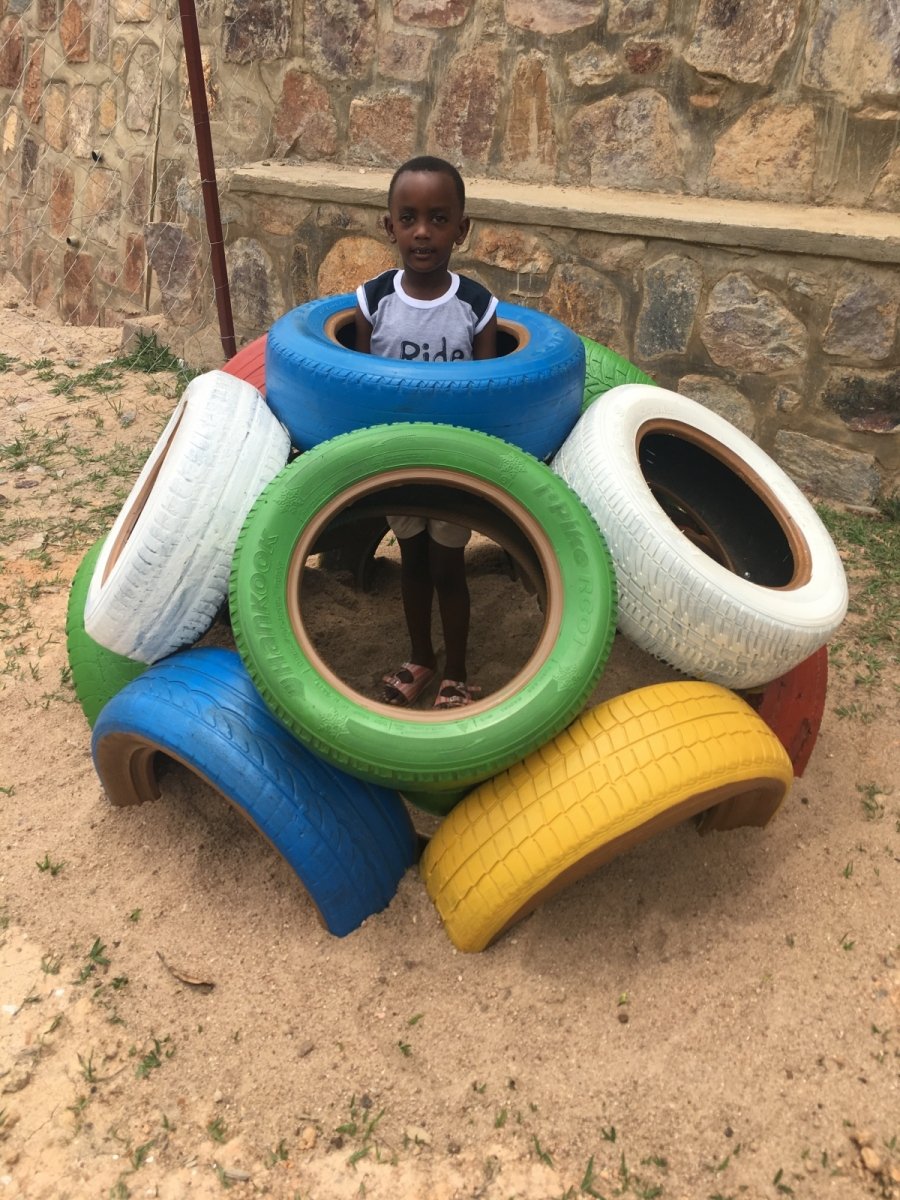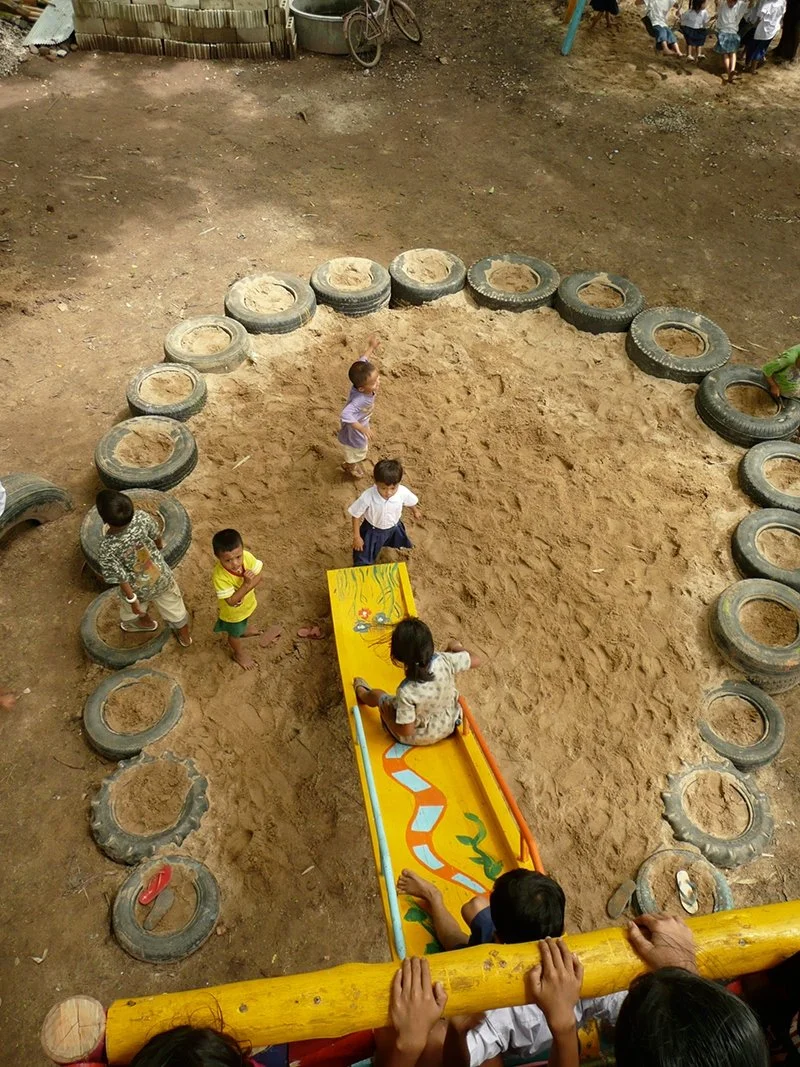Interviewee: Julian Ingabire Kayibanda
Interviewer: Giulia Gualtieri
January 2022
The PlayHub
Julian Ingabire Kayibanda
My name is Julian, and I am from Rwanda and the founder of PlayHub, an organisation helping to build a community-Parents, Educators, Caregivers, and leaders- united by the belief in the creative free play to unleash children’s creative potential. We are working towards increasing access to child-friendly spaces. Thus, we strive to leverage materials, skills, and spaces to ensure that children and the community around them can benefit from a just, safe, healthy, and playful life.
What difficulties do children experience in the streets of Kigali?
One of the challenges that children experience in Rwanda and across the continent is that our spaces do not provide safety for the children. And this is one of the reasons that push parents to not allow their kids to play on the street without supervision. On the road, there is violence, abuse, and exploitation.
Another challenge is closely related to our culture and social norms when discussing gender roles: today, you're thinking that maybe only boys should be able to play on the street, while girls should be doing something else. Those cultural norms and beliefs also create barriers to creating spaces for kids. For instance, when imagining a playground for children, you might envision only one gender playing and using the space. We need to shift our way of thinking and cultures in a more inclusive direction, considering that it is fair to give any child the same opportunities. This also counts for children with disabilities or other diversities.
The absence of green and clean areas is also a hindrance to ensuring playful spaces due to the decline in environmental protection. The consequences are that children are no longer in touch with nature, trees and green urban areas are not existing within your surroundings. Such are the challenges faced while trying to increase access to playful spaces. To address these, professionals, especially those that work to improve our urban infrastructures, suck as policymakers, urban developers and urban planners, must understand and identify with the gap.
“Playful learning goes beyond growing children’s imagination. It improves their cognitive and emotional strength.”
What was the inspiration behind the establishment of the PlayHub? How did it start? and What do you aim for?
Around ten years ago, I ran an empowerment program for women in one of Rwanda’s secondary cities. Many of them were challenged on joining the training while keeping their children back at home, maybe supervised by an older sibling who had to be at school. We understood that this was creating difficulties for them, and within our team, we thought, why not let children come to the training? Yes, it can be challenging keeping focus with children around, but we knew that we could find a solution and support families simultaneously. While providing a place for both mothers and children, we realised that children between 0 to 5 years old do not have a place for themselves in the city. They always need to be with mothers while working in the market or training. This moment was quite revealing for me to understand that there is no place in Rwanda dedicated to these children and their early childhood development. Thus, with our team, we set up this place with regular volunteers and kept the children busy with small games and toys while the mothers participated in the training. This is how The first versions of the Play hub started.
Thanks to the parents keeping the activity active, the place became a full-fledged learning centre. At that time, I understood that the lack of these places was a bigger problem, and this was just the beginning to try to find solutions. I experienced this issue on my skin again after 4 or 5 years when I became a mother, and there was no public space for my child; the few that existed were costly, and a handful of parents could access them. At that moment I realised that this wasn’t fair and I wanted to change it. After this realisation, I documented myself and realised that if I wanted to make a consistent impact, the concept of child-friendliness had to be embedded in every corner of our environments, from a bus stop to schools or a street pavement. At the same time, society should understand why children have the right to play. For this reason, the Play Hub aims to create a community that understands that play is a life process of lifelong learning for children. It must start from the policy level to become entirely part of communities.
What do playful learning and child-friendly cities mean for you?
For The PlayHub, and for me, playful learning is about children having the possibility to develop physical, cognitive health, mental status. When children are mustering this, they want to play, develop new competencies, and develop confidence. This is an increased level of resilience as children learn to face challenges head-on. So I really think that playful learning goes beyond growing children's imagination; it improves their cognitive and emotional strength.
I personally comprehend the concept of child-friendly cities as spaces where a child can quickly feel comfortable, safe and inclusive, welcoming and easily accessible. It could be a community or a school, or a building. Overall, a child-friendly city has to encompass all the children's needs and those capacities mentioned about playful learning: imagination, emotional and cognitive strength, and finding themselves as children can imagine their possibilities.
We want to thank Julian for her passion and activist dedication to promote more inclusive and just cities and create more child-friendly environments in Rwanda.
Thank you for sharing YOUR STORY WITH THE HUASIPICHANGA COMMUNITY!







